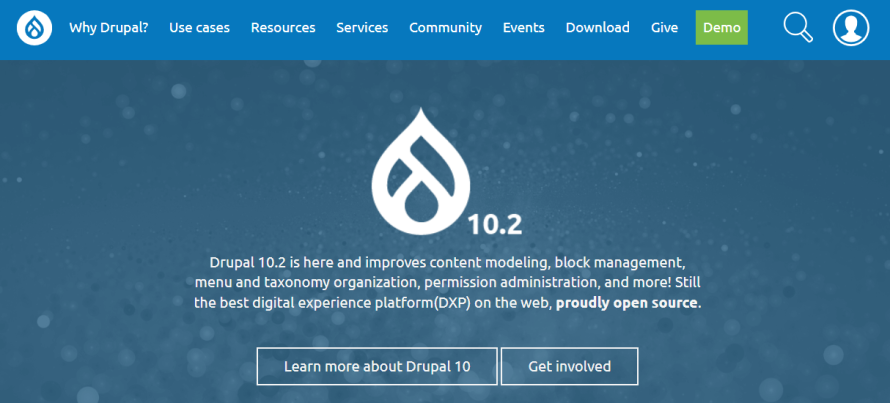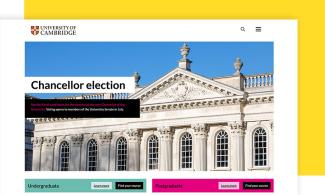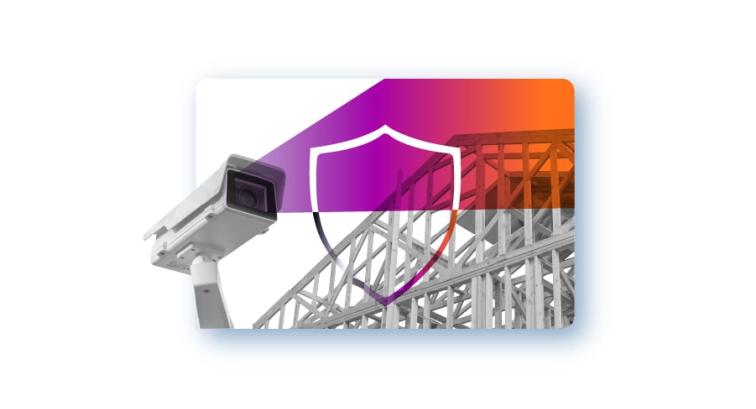Filters
Content Type
Topics
Smart CMS Choices: The Drupal Debate
A common myth is that Drupal is exclusively the domain of large enterprises with complex website needs and the resources to match. While it's true that giants like Entertainment Weekly, Tesla, NASA and Doctors Without Borders use Drupal to power their impressive online presence, this doesn't mean Drupal is out of reach for smaller organizations.
At first glance, Drupal presents an array of advantages that make it a compelling choice for website development. As an open source platform, Drupal gives users full ownership of their content.
However, there's another side to the story where individuals recount challenges and complexities that made their experience less than ideal. This can leave potential users in a quandary, uncertain whether to believe the Drupal evangelists or naysayers and not knowing if Drupal is the right fit for their needs.
The answer, as is often the case, is far more nuanced and depends on each business's individual needs and circumstances. In this article, we will take a closer look at the pros and cons of Drupal core, making it easier to decide whether it is right for your website.
Image

Who Is Drupal Core For?
Drupal is popular among enterprise-grade businesses due to its flexibility, scalability and robust features tailored for ambitious projects. However, its architecture and philosophy of being a tool for “ambitious site builders” make it equally suitable for organizations of smaller sizes looking to scale and evolve their online platforms.
Drupal is designed to cater to businesses and projects of various sizes that require a comprehensive and versatile content management system (CMS):
- Businesses Seeking Flexibility and Scalability: If your organization values a CMS that can grow with you, adapting to ever-changing digital landscapes, Drupal is worth considering. Its modular design allows for extensive customization and scalability.
- Ambitious Sites Needing Diverse Functionalities: For websites that aspire to go beyond the basics, Drupal’s robust framework can accommodate complex requirements, offering a wide range of content types, integrated digital services and interactive user features.
Pros of Drupal
Open Source and Customizability
One of Drupal's most significant strengths is that it is open source, combined with the visionary guidance of its founder, Dries Buytaert. Unlike many other platforms that follow a narrow, predefined roadmap, Drupal thrives on broad guidelines that encourage innovation and flexibility. This approach has fostered a vibrant community that contributes to its growth and evolution.
Also, because it’s open source, Drupal is freely available to download and use, which means you can build and maintain a website with no licensing fees. The platform allows users to customize and extend its functionality with thousands of modules available in the Drupal community or create their own to meet the unique needs of each project.
Contrary to concerns, the open-source aspect contributes to Drupal’s robust security posture. With a proactive security team that releases timely and thorough updates, Drupal maintains a strong defense against potential vulnerabilities.
Virtually No Paid Modules
Drupal distinguishes itself with an almost exclusive library of free modules. This democratizes web development, allowing users to extend and customize their websites without facing the barrier of paid plugins, which is a common concern with other CMS platforms.
Revolutionary Fields and Views
The real game-changer for Drupal came in 2007 with the centralization of the Content Construction Kit (CCK) and Views. This innovation allows users to easily model complex data structures – like a music album with release dates, songs and artist references – and display this content dynamically. Views, in particular, empower site builders to create sophisticated queries and displays without writing a single line of code.
Overlapping Tools for a Diverse User Base
Drupal's ecosystem offers overlapping tools for a wide array of users, including developers, site builders, themers and content editors. This inclusive approach integrates “no code” or “low code” tools with developer workflows, making Drupal accessible and powerful for users of varying technical backgrounds.
Robust, Developer-Friendly Platform
Often regarded as a “developers’ CMS”, Drupal excels in creating complex, scalable websites. Its robust features support sophisticated development and personalization, offering more capabilities than many other CMS platforms. This has led organizations to choose Drupal for its depth and flexibility, even when alternatives like WordPress might appear simpler for certain applications.
Even though WordPress is more popular in the media industry and you can build a new site in minutes, we decided to stick with Drupal. We knew Drupal would allow us more sophisticated development and personalization. We can do more with it.”
Bartłomiej Swojak, Web Product Manager at Tygodnik Powszechny
Additionally, Drupal's community consists of passionate developers and users who offer unparalleled support and advice. This vibrant ecosystem fosters collaboration and innovation, ensuring that help is just a post away on Drupal.org for anyone facing challenges.
“There’s a lot of energy and passion and excitement in the community. You could go into Drupal.org if you are running into a problem, post a question and there’s a good chance in 24 hours somebody’s going to respond. My teams love it!” Mackenzie Pollock, Senior Digital Product Experience Manager at Monotype
Accessibility and Multilingual Capabilities
Drupal strives to ensure that its features conform to the latest accessibility guidelines.
As Jim Alberque, GIS and Emerging Technology Manager at the City of Raleigh said, “Moving to Drupal has given us a great opportunity to leverage additional tools to consistently move the needle on providing better accessibility services.”
In addition, Drupal’s built-in support for multilingual sites simplifies the creation of global, inclusive content, making it an ideal choice for organizations aiming to reach a worldwide audience.
Cons of Drupal
While Drupal has a robust set of features and capabilities that can make it an attractive choice for many organizations, it's not without its challenges:
Steep Learning Curve
One of the most cited drawbacks of Drupal is its steep learning curve. For non-technical users or those without a dedicated development team, Drupal can appear daunting.
The platform is known for its “Drupalisms”– unique terms and concepts that can be a hurdle for new developers and users to understand. This complexity means that successfully leveraging Drupal's full potential often requires a level of technical proficiency or access to individuals who have that expertise.
Developer Dependency
Due to its technical nature and flexibility, Drupal projects typically rely heavily on developers for both initial setup and ongoing maintenance or updates. This dependency extends to the use of Drush, Drupal's command line and scripting interface, which, while powerful, adds another layer of assumed knowledge.
This can present challenges for teams without in-house development resources, making them dependent on external Drupal experts for significant changes or troubleshooting.
Update Process
Drupal is committed to staying at the cutting edge of web technologies, which is a double-edged sword. On one hand, users benefit from a platform that's constantly evolving and integrating the latest tech advancements.
On the other hand, the community's decision to avoid supporting outdated technologies means that updating from one major version of Drupal to another can be a significant undertaking. Though the process has been streamlined significantly since the release of Drupal 8 in 2015, full software updates can still require considerable effort and planning.
Resource Intensity
Without careful development and code optimization, a Drupal website can suffer from slow load times and a subpar user experience. This is why at Pantheon, we offer locked-down infrastructure configurations and performance monitoring tools like New Relic as part of our hosting solutions. Proper setup and optimization are critical to ensuring a Drupal site performs well.
Reliance on Community Support
Drupal doesn't offer a direct hotline to a support team when issues arise because it’s open source. While the Drupal community is vast, active and often incredibly helpful, relying solely on community support can be a drawback for some organizations.
This challenge can be mitigated by partnering with a knowledgeable hosting provider that specializes in Drupal and offers expert support, but it's an important consideration for those evaluating CMS options.
Pantheon’s Solutions to Drupal Pain Points
Our Pantheon WebOps platform is the go-to for teams grappling with the complexities of managing Drupal, WordPress and Next.js sites. It offers a blend of the inherent benefits of Drupal enhanced with cutting-edge features and support.
This fusion aims to alleviate common Drupal pain points, creating a more streamlined, secure and collaborative environment for developers, marketers and IT professionals alike.
Enhanced Collaboration and Efficiency
At Pantheon, we understand the vital role of collaboration and efficiency in the success of web projects. Our WebOps platform’s Structured Agile Workflows exemplify this understanding, providing a framework that harmonizes the efforts of people and processes. As highlighted by Travis Tomka, a Senior Developer at Aten digital design consultancy:
“In partnership with Pantheon, we were able to synchronize people and processes at Vertafore. Their IT could finally stop worrying about security and governance. Marketers gained control of their websites. And Aten developers were happy to continue coding in Drupal using Pantheon’s modern tools. Pantheon was the glue that kept us together on the path to business velocity for this client.”
Pantheon's ecosystem facilitated a cohesive workflow among IT professionals, marketers and developers at Vertafore. This integration not only alleviated concerns around security and governance but also empowered marketers with greater control over their web presence – all while enabling developers to leverage Drupal's capabilities alongside Pantheon's modern tools.
Developer-Friendly Environment
For Drupal’s developers, our Pantheon WebOps Platform presents an inviting and productive environment. Its architecture – which includes Dev, Test and Live environments along with Multidev capabilities – allows developers to work in isolated environments for each feature or update. This enhances testing accuracy and speeds up the development process without risking the stability of the live site.
Additionally, Pantheon offers Terminus, a command-line interface (CLI) that further simplifies and automates tasks, making it easier for developers to manage their sites. Whether it's executing updates, managing configurations or deploying code, Terminus provides a powerful tool to enhance productivity and streamline workflows.
Streamlining Updates and Security with Autopilot
Understanding the critical nature of security and the effort involved in updates, Pantheon introduces Autopilot. This feature automates the update process, ensuring that sites are always running the latest, most secure software versions. By handling updates automatically, Autopilot reduces the risk of vulnerabilities and frees up developer time for more value-added tasks.
Leveraging Upstreams for Easy Maintenance
Pantheon's concept of Upstreams offers another layer of convenience and efficiency. By using Upstreams, organizations can maintain a base distribution of Drupal that can be easily updated across multiple sites. This is particularly beneficial for agencies and organizations managing multiple Drupal installations, as it simplifies the update process and ensures consistency across sites.
Unmatched Support
We distinguish ourselves through our exceptional customer support. Users of Pantheon gain access to Drupal experts who can offer guidance, resolve issues and provide best practices to maximize the potential of their Drupal sites. This level of support ensures that teams can overcome challenges quickly and make the most of their Drupal investment.
Pantheon in Action: Franklin College
Franklin College of Arts and Sciences is the University of Georgia’s (UGA) oldest, largest and most diverse college. It faced a monumental task: managing and branding over 118 websites.
Image

Partnering with us at Pantheon enabled the college to centralize its web operations, significantly reduce deployment times and shift focus towards innovative projects like digitizing its vast collection of curated specimens – from rocks to invertebrates.
Our Pantheon WebOps platform allowed the college to consolidate its digital footprint on Drupal, standardizing themes across departments while allowing for customized content. This enhanced the brand consistency and liberated the web services team from the constraints of a fragmented and inefficient system.
With Pantheon, we can do a security update in 90 minutes on 100+ sites, which used to take three days. We just click some buttons and magic happens.”
Stephanie Lynn, Senior IT Manager at Franklin College
With Pantheon, Franklin College could afford the flexibility required by its performing and visual arts schools, which desired more creative freedom in their web presentations. This adaptability was made possible through Pantheon’s Upstreams, which maintains site standards while enabling bespoke content experiences.
Maximizing Drupal Performance With Pantheon
Drupal is made for those who envision creating digital experiences that are not just unique but are also scalable, flexible and robust. It caters to a wide array of projects, from enterprise-level behemoths to smaller, but equally ambitious and innovative ventures aiming to make a significant impact in their domains. However, to truly unleash Drupal's potential, the choice of hosting platform plays an important role.
This is where our Pantheon WebOps platform steps in, transforming the Drupal experience with unparalleled performance and security features.
Because speed is a critical factor in user experience, search engine rankings and overall site success, Pantheon elevates Drupal sites with fast hosting speeds to ensure that your digital presence stands out. This will keep your users engaged and reduce bounce rates.
Additionally, Pantheon strengthens Drupal sites with an Advanced Global Content Delivery Network (CDN) and Web Application Firewall (WAF), providing a comprehensive security solution that guards against a wide range of threats. These features protect your site from malicious attacks and ensure that your digital assets remain safe, giving you and your users peace of mind. With Pantheon, security is seamlessly integrated into your Drupal site’s architecture, ensuring that safety is a given and never a concern.
Contact an expert at Pantheon today to discuss your needs and goals and explore how Drupal can elevate your digital presence.
With Pantheon, you're not just choosing a hosting provider; you're selecting a partner committed to maximizing your site's performance, security and success!


